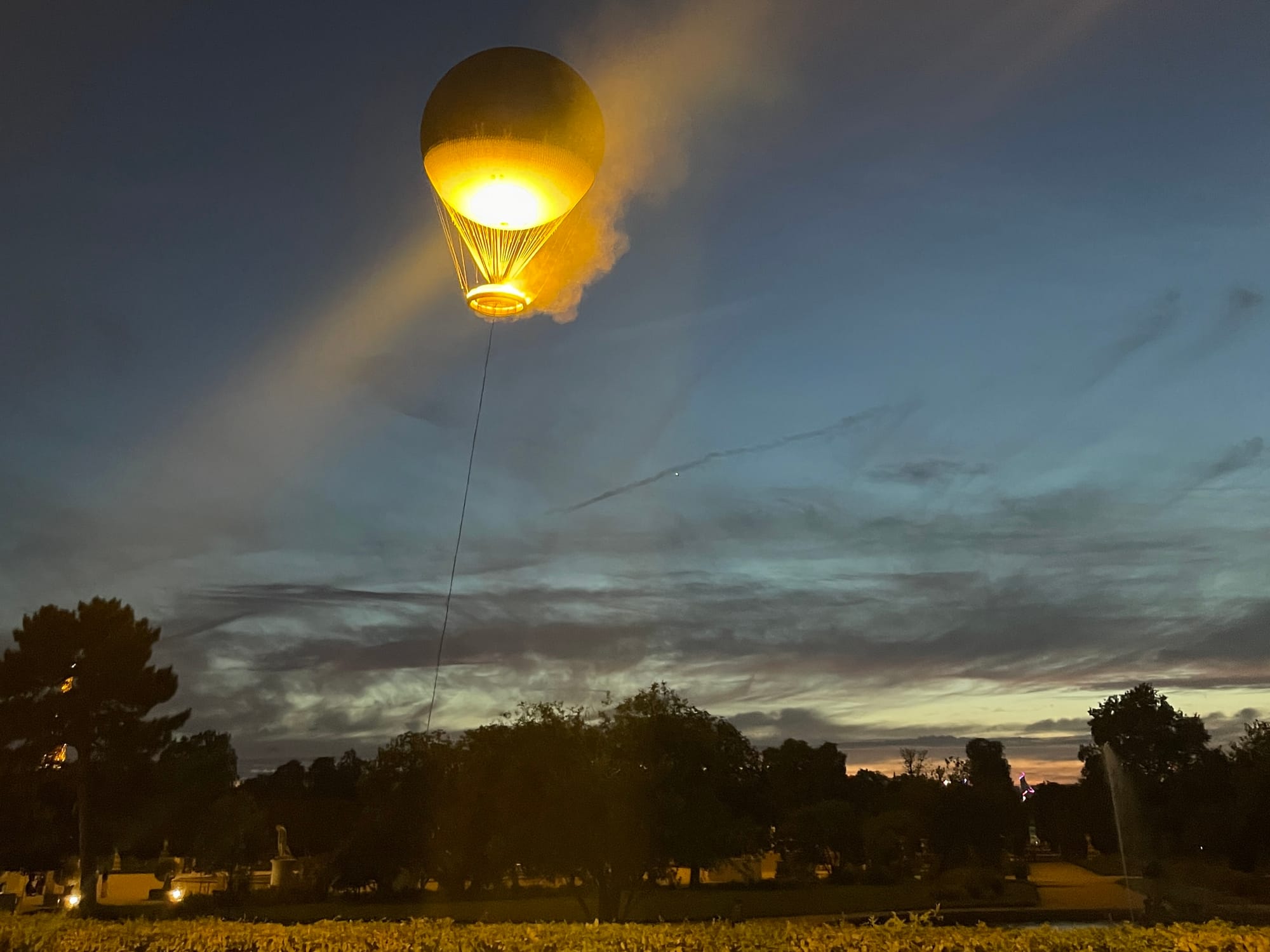The Power of Sports and Identity🤸♀️

Salut !
The Olympics are soon coming to an end and I wonder what kind of performances we’ll see during the closing ceremony tomorrow! Speaking of performances, last Sunday’s men’s final tennis match between Djokovic and Alcaraz was legendary.🎾 They were basically playing the same level of tennis, but in the end Djokovic was just an inch better than the 21-year-old Alcaraz. Djokovic truly earned his victory and Alcaraz will probably have other chances to win the Olympic gold in the future anyway, whereas this was Djokovic’s last opportunity in his career to win it. Still, it was adorable when Alcaraz got a bit emotional in his interview on court right after the loss. He said afterwards in the press conference that after his initial burst of emotions, he’s now very happy to have won the silver medal for Spain.
Anyways, it’s just astonishing how much perseverance and physical endurance the athletes have. But beyond these peak performances that humans can reach, the Olympics makes me think of the importance of movement in general.
To move is to live. To live is to move.
That said, to move is not to be taken for granted. Rather, it’s a miracle if we are able to execute the complex processes in our brain that are required in order to move each part of our bodies.
So regardless of how athletically inclined or talented we feel, if we can move, it’s a gift that deserves to be used in some way or another every day. Of course world-class athletes move everyday because it is their job to maintain their physique, but usually also because they truly enjoy it. So even though I don’t do sports at such a high level, I think it’s valuable to apply the same kind of mentality in my life.
In order for me to stay consistent with my identity that I’m a person who likes and wants to take care of my body, excercising has to be something relatively simple that gets my heart rate up for a moment and increases my endurance, but doesn’t strain me too much either.
That said though, I haven’t really had the chance to do so much sports here in Paris as I did in Helsinki, but I’m looking forward to starting tennis lessons at some point again. So instead, for me daily movement means often for example walking elegantly a few thousand steps in the city space or in a park, walking up the stairs in the metro or to my apartment in the 5th floor, doing 5-20 minutes of stretching or a more intense workout before washing my hair, or dancing for 20 minutes while vacuuming the apartment.😜
Having the habit of excercising in some way every day is essentially a simple thing, but not always easy to execute. But maybe in the end one of the biggest factors that determine whether or not I’ll keep excercising in the long run, is the effect of my ”identity” that I mentioned earlier.
I’ve noticed now that even though I wouldn’t work out per se in a few weeks or even months, somehow I still come back to it at some point and I start working out again. And now I’ve realized that it’s because I’ve always had an identity of a person who is active and who likes to do sports. That’s the force that makes me move regularly, whether I’m constantly conscious about it or not. It’s a sort of a belief that I am able to hold on to this beneficial aspect of my identity.
What about you? What are the features that define your identity? Which are the beneficial ones you’d like to keep and which ones would you like to nudge towards a different direction?
I haven’t thought about the effect of our identity as much before, but now I realize how important it is. In a way, our identity dictates much of our behavior and habits, and in the long run, the small habits make a big impact. This also means that if we want to transform an aspect of our identity to a different direction, and if we want to keep that change in the long run, it has to start with small manageable changes in our habits. In other words, establishing a new status quo in our identity doesn't happen overnight.
Of course we can try to do a radical change in our identity and change lots of habits all at once, and it can work, but it’s worth noting that it won’t be as likely to last than if we start with something small and make the changes more slowly over a longer period of time.
Whatever the case, I’d say that the most important thing while trying to generate some sort of change in our life is to treat it as a game, in the spirit of play, in order to preserve the joy of the process. What’s sure is that on the way to achieving any goal, there will be setbacks, but in the end it’s not useful to talk to yourself negatively about it. It just doesn’t help to blame yourself that you missed the mark that time. Instead, I’m working on trying to always figure out the reasons why I didn’t do what I intended to, what were the emotions behind it, and then start fresh the next time with a positive mindset.
These last few thoughts are derived from some of the ideas I’ve read in Ali Abdaal’s bestselling book Feel-Good Productivity : How to Do More of What Matters to You. The author is a doctor-turned-entrepreneur and I really like the way he utilizes concepts from the research in positive psychology in a way that’s easy to digest and to put in practice. So check out the book and also his Youtube channel if you’d like to know more about this sort of mindset shifts that help us make progress in the things that are most important to us while having fun along the way.🤓
This week’s letter turned out to be a bit more deep than usual, but it’s great! I think it’s an interesting topic, and I hope you do too!😉
Until next time and have a stylish week full of movement and progress!
Bisous,
Elle
❣️Recent delights
- Here's a nice, slightly older interview of Inès de la Fressange on TV that was kind of cute.
- I stumbled upon an interesting video on Ralph Lauren that gives a brief history of the brand and some tips for buying RL items second hand.
